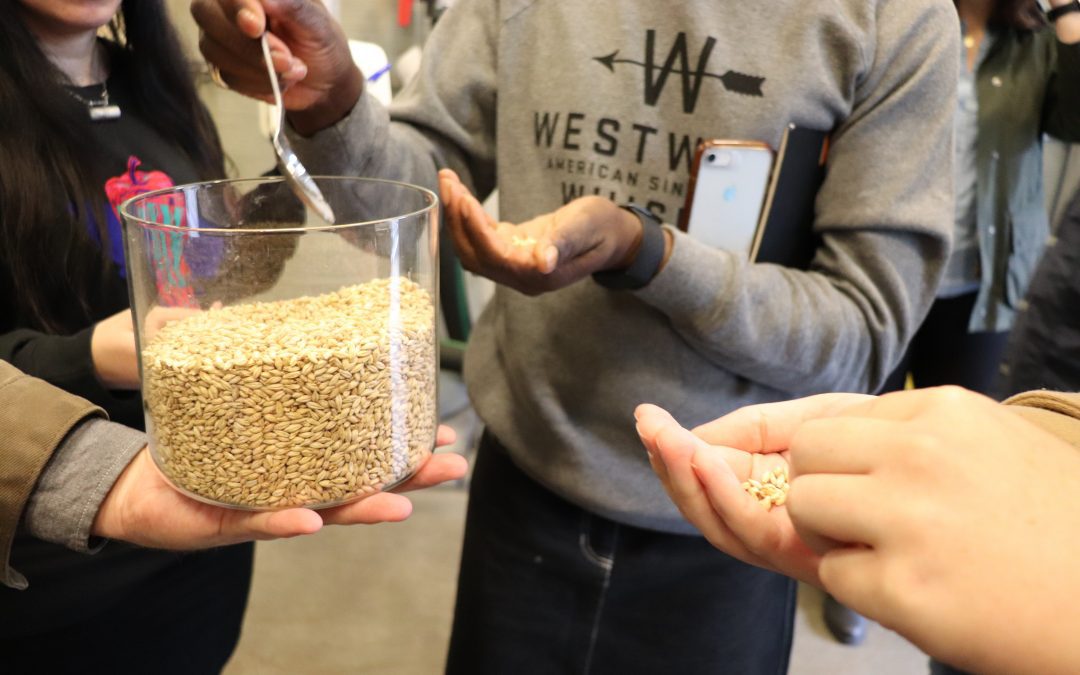The general – and international – definition of whiskey is that it is a spirit made from grain, water, and yeast, is distilled at less than 190 proof, and stored in oak containers. Pretty basic. But there can be many, many variations on that theme and the most basic has to do with the grains used. Just as any dish has a recipe of ingredients, so does a whiskey.
In the case of whiskey, that recipe is known as the mashbill, and as I suspect every Bourbon Woman knows, a bourbon’s mashbill must be at least 51% corn. The other grains – called the smalls – are usually rye and malted barley. Wheated bourbons (“wheaters”) substitute wheat for the rye. There are also a few four-grain bourbons using corn, rye, wheat, and malted barley. There’s even a 5-grain bourbon from South Carolina (Six & Twenty) that adds rice to the mix.
All that said, the vast majority of bourbons use more than 70% corn. Some examples:
- Angel’s Envy, Old Forster, Woodford Reserve – 72% corn, 18% rye, 10% malted barley
- Buffalo Trace – 75% corn, 10% rye, 15% malted barley (Unconfirmed by the distillery. But they don’t dispute it either.)
- Elijah Craig Small Batch – 78% corn, 10% rye, 12% malted barley
- Four Roses Single Barrel – 60% corn, 35% rye, 5% malted barley
- Maker’s Mark – 70% corn, 16% red winter wheat, 14% malted barley
Note that Angel’s Envy (made by the Louisville Distilling Company) and Old Fo and Woodford (Brown-Forman) all use the same mashbill. So, the grain recipe is just the starting point. Many other factors go into a whiskey’s flavor profile.
Also note that the Four Roses mashbill is more than a third rye. Bourbons such as this are sometimes referred to as “high rye.” (More about Four Roses’ ten mashbills here.)
Similarly, American rye whiskey must be at least 51% rye and American malt whiskey at least 51% malt. Some examples:
Ryes
- Catoctin Creek Roundstone Rye – 100% rye
- Dad’s Hat Rye – 80% rye, 20% malted barley
- Wilderness Trail Settler’s Select Rye – 56% rye, 33% corn, 11% malted barley
Malts
- Stranahan’s Colorado Whiskey – 100% malted barley
- MB Roland Malt – 63% malted barley, 21% white corn, 15% rye
- Woodford Reserve Straight Malt – 51% malted barley, 47% corn, 2% rye
As you can see, the proportion of defining grain in ryes and malt whiskeys tends to vary much more widely than the amount of corn in bourbon. And this is just the beginning of the possibilities for mashbills. To see the kinds of whiskeys featuring unconventional grains being made by some American distillers, check out this article I wrote for American Whiskey Magazine.
Photo Courtesy of Maggie Kimberl

